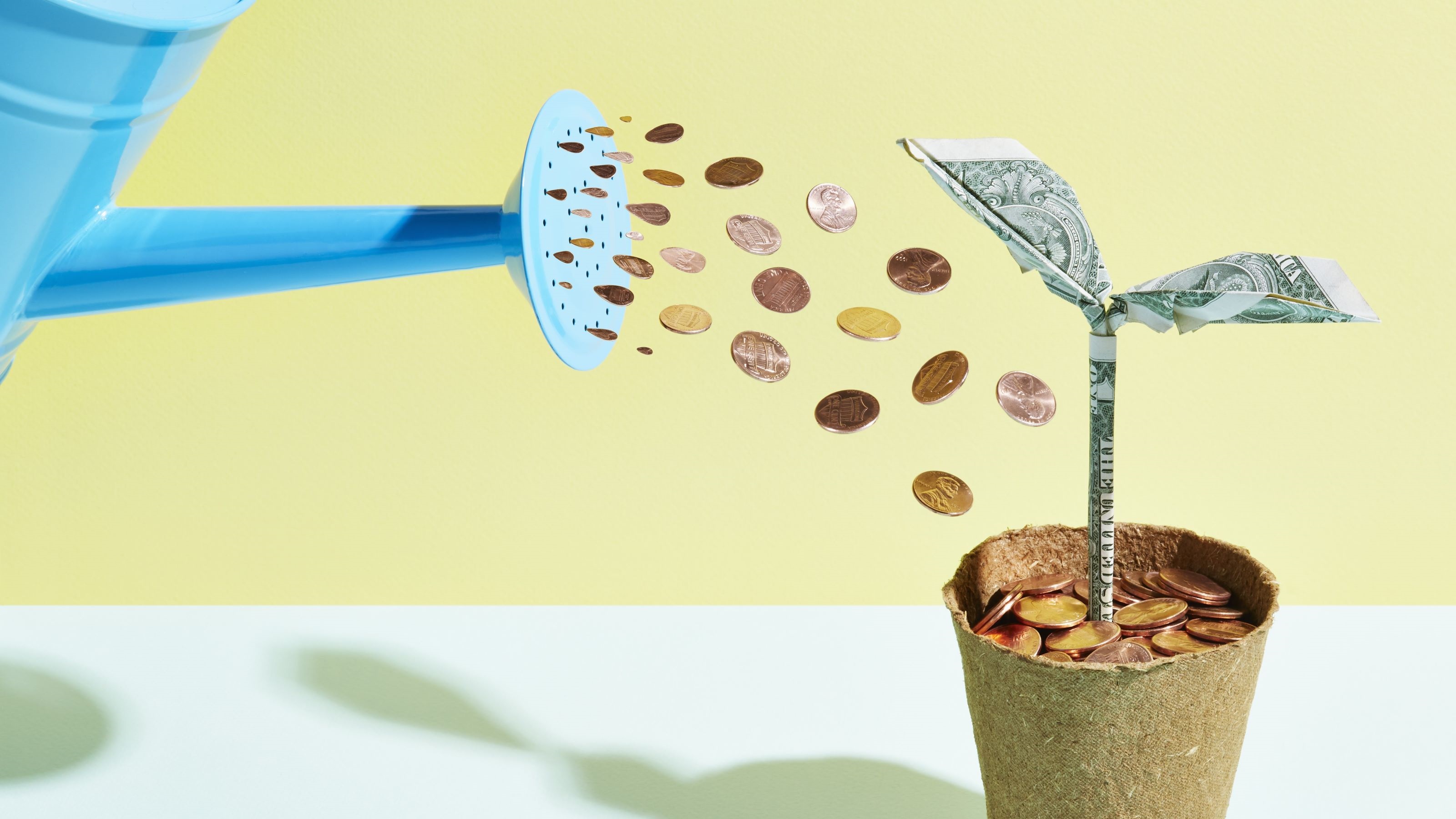Should You Use Add-On CDs?
Add-on CDs can be opened with as little as $100, offer a fixed interest rate and allow you to make deposits throughout the term. But what are the trade-offs?

Charlotte Gorbold

Profit and prosper with the best of Kiplinger's advice on investing, taxes, retirement, personal finance and much more. Delivered daily. Enter your email in the box and click Sign Me Up.
You are now subscribed
Your newsletter sign-up was successful
Want to add more newsletters?

Delivered daily
Kiplinger Today
Profit and prosper with the best of Kiplinger's advice on investing, taxes, retirement, personal finance and much more delivered daily. Smart money moves start here.

Sent five days a week
Kiplinger A Step Ahead
Get practical help to make better financial decisions in your everyday life, from spending to savings on top deals.

Delivered daily
Kiplinger Closing Bell
Get today's biggest financial and investing headlines delivered to your inbox every day the U.S. stock market is open.

Sent twice a week
Kiplinger Adviser Intel
Financial pros across the country share best practices and fresh tactics to preserve and grow your wealth.

Delivered weekly
Kiplinger Tax Tips
Trim your federal and state tax bills with practical tax-planning and tax-cutting strategies.

Sent twice a week
Kiplinger Retirement Tips
Your twice-a-week guide to planning and enjoying a financially secure and richly rewarding retirement

Sent bimonthly.
Kiplinger Adviser Angle
Insights for advisers, wealth managers and other financial professionals.

Sent twice a week
Kiplinger Investing Weekly
Your twice-a-week roundup of promising stocks, funds, companies and industries you should consider, ones you should avoid, and why.

Sent weekly for six weeks
Kiplinger Invest for Retirement
Your step-by-step six-part series on how to invest for retirement, from devising a successful strategy to exactly which investments to choose.
Following the Federal Reserve’s recent moves to cut short-term interest rates, yields on certificates of deposit have been falling. But because the Fed is likely to keep lowering rates — Kiplinger expects cuts to continue into 2026 — locking in current yields with a new CD can still be a smart strategy.
With most CDs, you must make the entire investment when you open the account. But with a special type of certificate known as an add-on CD, you can put in extra funds after the initial deposit, which tends to be low compared with traditional CDs — around the $100 mark. That's good news if you don't have lots of cash on hand to start your investment.
As with a traditional CD, the interest rate remains the same until the certificate’s maturity. So if you expect to have more money to deposit during its term, you may benefit from the ability to keep adding funds and earning the same yield, especially if prevailing rates fall during that time.
From just $107.88 $24.99 for Kiplinger Personal Finance
Become a smarter, better informed investor. Subscribe from just $107.88 $24.99, plus get up to 4 Special Issues

Sign up for Kiplinger’s Free Newsletters
Profit and prosper with the best of expert advice on investing, taxes, retirement, personal finance and more - straight to your e-mail.
Profit and prosper with the best of expert advice - straight to your e-mail.
What are the downsides to add-on CDs?
On the downside, add-on CDs aren’t as widely available as traditional CDs — and many of the institutions that offer them are credit unions with membership restrictions.
SchoolsFirst Federal Credit Union, for instance, has a six-month add-on CD with a 4.4% yield ($500 minimum opening deposit), but you have to be a California school employee or family member to join. Navy Federal Credit Union offers a 4.25% yield on a 12-month add-on CD ($50 minimum opening deposit), but membership is limited to those with a military affiliation.
Plus, rates for add-on CDs may not be as attractive as those you can get with top-yielding traditional CDs. For example, the 24-month Investment CD from Bank5 Connect, which lets you add funds anytime during the term after you deposit at least $500, recently offered a 3.3% yield. And the 12-Month Add-On from Associated Bank, which has an minimum opening deposit of $100, offers 1.49% interest. That compares with yields surpassing 4% on some traditional two-year CDs.
Lastly, you'll need to be comfortable with locking away your savings for the entire term, as taking cash out of the account before it matures can result in a penalty. If you think you'll need access to your savings, you could consider a no-penalty CD or a no-fee high-yield savings account instead.
You can see current options for CDs with this Bankrate tool:
Note: This item first appeared in Kiplinger Personal Finance Magazine, a monthly, trustworthy source of advice and guidance. Subscribe to help you make more money and keep more of the money you make here.
Related content
Profit and prosper with the best of Kiplinger's advice on investing, taxes, retirement, personal finance and much more. Delivered daily. Enter your email in the box and click Sign Me Up.

Ella Vincent is a personal finance writer who has written about credit, retirement, and employment issues. She has previously written for Motley Fool and Yahoo Finance. She enjoys going to concerts in her native Chicago and watching basketball.
- Charlotte GorboldKiplinger Contributor
-
 Ask the Tax Editor: Federal Income Tax Deductions
Ask the Tax Editor: Federal Income Tax DeductionsAsk the Editor In this week's Ask the Editor Q&A, Joy Taylor answers questions on federal income tax deductions
-
 States With No-Fault Car Insurance Laws (and How No-Fault Car Insurance Works)
States With No-Fault Car Insurance Laws (and How No-Fault Car Insurance Works)A breakdown of the confusing rules around no-fault car insurance in every state where it exists.
-
 Why Picking a Retirement Age Feels Impossible (and How to Finally Decide)
Why Picking a Retirement Age Feels Impossible (and How to Finally Decide)Struggling with picking a date? Experts explain how to get out of your head and retire on your own terms.
-
 It's Time to Rethink What 'Aging Well' Means
It's Time to Rethink What 'Aging Well' MeansDon’t fall into the trap of thinking there is a "right way" to age. Here's how to reframe aging in a healthy, achievable way.
-
 I’ve Played 1,300-plus Golf Courses: These Are the 4 on My 'Must-Play' List for 2026
I’ve Played 1,300-plus Golf Courses: These Are the 4 on My 'Must-Play' List for 2026These four luxury golf courses offer an extraordinary experience for players this year.
-
 How to Plan a (Successful) Family Reunion
How to Plan a (Successful) Family ReunionFrom shaping the guest list to building the budget, here's how to design a successful and memorable family reunion.
-
 Is Direct Primary Care Right for Your Health Needs?
Is Direct Primary Care Right for Your Health Needs?With the direct primary care model, you pay a membership fee for more personalized medical services.
-
 Smart Ways to Share a Credit Card
Smart Ways to Share a Credit CardAdding an authorized user has its benefits, but make sure you set the ground rules.
-
 Tip: Ways to Track Your Credit Card Rewards
Tip: Ways to Track Your Credit Card RewardsHere are the best strategies and apps to help you stay current with your credit card rewards.
-
 How We Manage Our Finances Together as a Married Couple
How We Manage Our Finances Together as a Married CoupleDouglas Boneparth, a certified financial planner, and his wife, Heather Boneparth, speak with Kiplinger about couples managing finances.
-
 Where to Stash Cash as Yields Fall, According to Advisers
Where to Stash Cash as Yields Fall, According to AdvisersYour best options depend on how soon you'll need the money and your tolerance for risk.